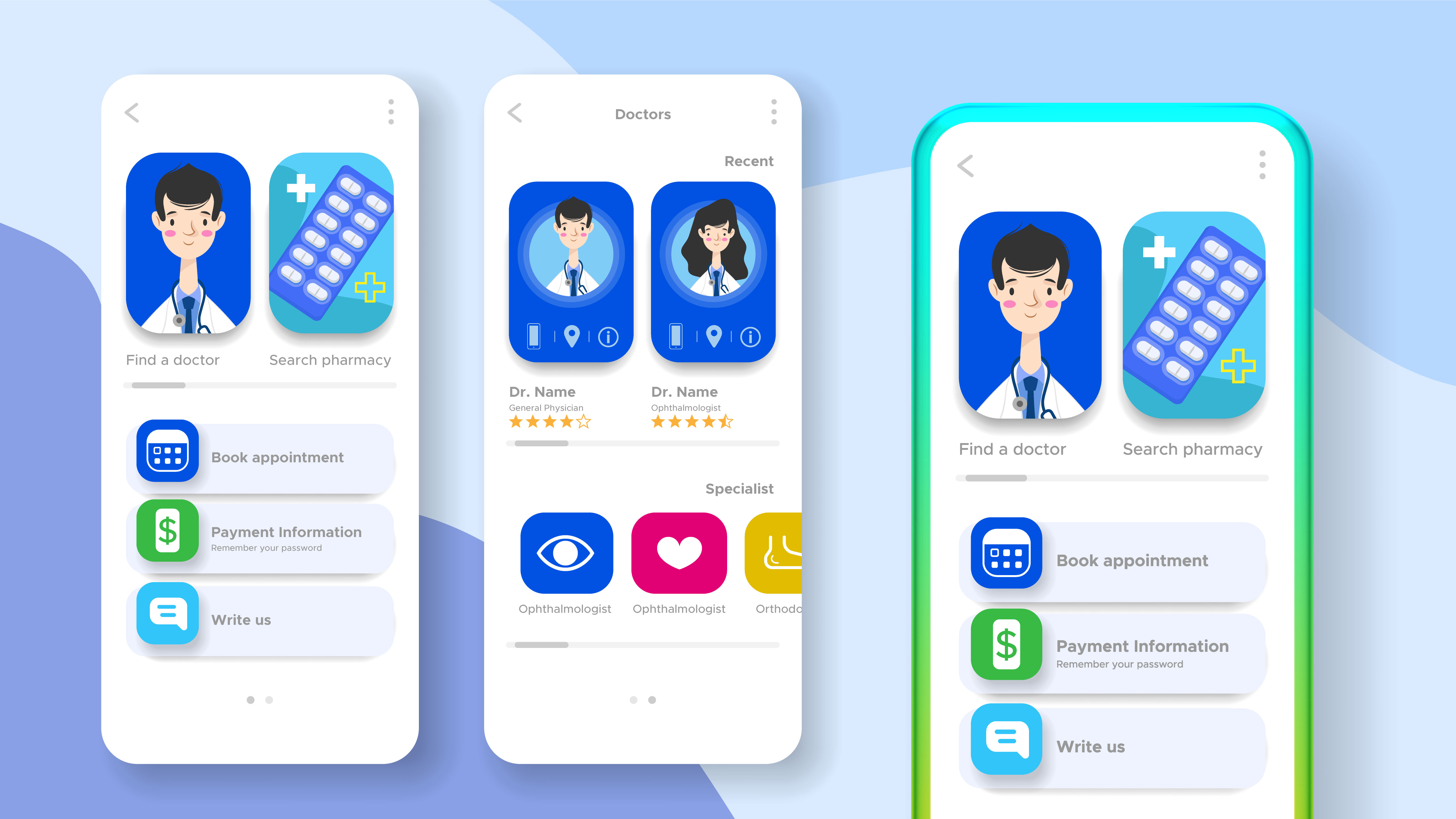Healthcare app development is revolutionizing how people access medical care, manage their health, and interact with healthcare providers. From remote consultations to personalized treatment plans, these apps are transforming the industry. In this detailed guide, we'll cover everything you need to know about healthcare app development: the types of healthcare apps, must-have features, benefits, and the cost involved.
1. Understanding Healthcare Apps
Healthcare apps can be categorized into multiple types, serving patients, doctors, hospitals, and even healthcare institutions. Some of the most common types include:
- Telemedicine Apps: Connect patients with doctors remotely for consultations.
- Health Monitoring Apps: Help patients track vital signs like heart rate, blood pressure, or glucose levels.
- Medical Record Apps: Provide patients with access to their electronic health records (EHR).
- Wellness and Fitness Apps: Focus on preventive health, tracking daily activity, diet, sleep, etc.
- Appointment Booking Apps: Enable users to book, reschedule, or cancel doctor appointments.
- Medication Reminder Apps: Ensure patients take prescribed medications on time.
2. Essential Features of Healthcare Apps
To be effective and meet user needs, a healthcare app should include several core features. Here are some of the must-haves:
Patient and Doctor Profiles
- Patient Profiles: Allow users to input and update personal details, medical history, and track health conditions.
- Doctor Profiles: Enable doctors to share qualifications, experience, and specialties for patients to choose the right provider.
Appointment Scheduling
- Patients can search for doctors based on specialization, location, and availability, then book an appointment in real-time.
Telemedicine and Video Conferencing
- Secure video calls or chat features allow patients to consult with healthcare providers from their homes, making healthcare more accessible.
Health Monitoring and Wearable Integration
- Integration with wearables like smartwatches allows apps to track vital signs such as heart rate, sleep patterns, or activity levels.
Electronic Health Records (EHR)
- Secure access to patients' health records ensures that both patients and healthcare providers have a clear, accurate view of medical history.
Prescription Management
- Doctors can send e-prescriptions through the app, and patients can order medications directly from integrated pharmacies.
Push Notifications and Reminders
- Alerts for upcoming appointments, medication schedules, or follow-up visits to keep users on track with their healthcare.
Payment and Billing
- Secure payment gateways for consultation fees, medical bills, and insurance claims.
Data Privacy and Security (HIPAA Compliance)
- Compliance with healthcare regulations like HIPAA (in the U.S.) ensures data security and patient privacy. Encryption and authentication mechanisms are essential for secure transactions.
Chatbots and AI Assistants
- AI-driven chatbots can assist with answering routine medical questions, appointment bookings, or symptom checking, offering 24/7 assistance.
3. Benefits of Healthcare Apps
Healthcare apps offer numerous advantages, benefiting patients, healthcare providers, and the healthcare system overall:
- Convenient and Remote Access to Healthcare
- Improved Patient Engagement and Health Outcomes
- Cost Reduction for Both Patients and Providers
- Real-Time Monitoring and Personalized Care
- Enhanced Healthcare Provider Efficiency
- Data Analytics for Better Decision Making
4. Factors Affecting Healthcare App Development Costs
Several factors influence the cost of healthcare app development. These include the app's complexity, the features required, compliance standards, and the development team's location. Below are the key cost components:
- App Complexity
- Features
- Compliance Requirements
- Design and User Interface (UI/UX)
- Development Team Location
- Maintenance and Updates
Conclusion
Healthcare app development offers immense potential to enhance patient care, reduce healthcare costs, and improve operational efficiency for healthcare providers. However, building a successful healthcare app requires careful planning, choosing the right features, ensuring compliance with healthcare regulations, and maintaining a user-centric design.
Whether you're a healthcare provider looking to enhance patient engagement or an entrepreneur aiming to disrupt the healthcare industry, investing in a well-designed, secure, and feature-rich app can pave the way for future success.
With advancements in technology like AI, IoT, and telemedicine, the future of healthcare apps is brighter than ever, creating opportunities to revolutionize patient care and improve healthcare outcomes globally.
If you're looking to develop a healthcare app and want expert assistance, HTO Software Systems Pvt Ltd specializes in custom healthcare app solutions, ensuring compliance and top-notch performance for your healthcare needs. Reach out to us at www.htosoftware.com to get started!

